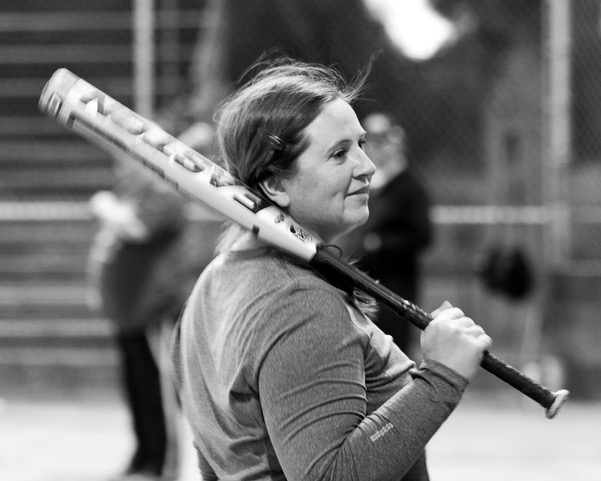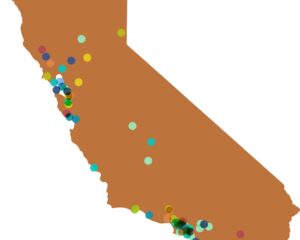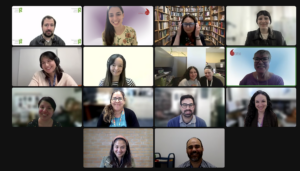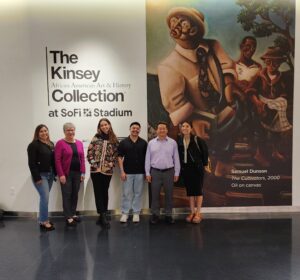Above image: Jessica Weare, California Humanities Board Member. Photo by James Gable.
This month our spotlight is on California Humanities’ board member Jessica Weare, Vice President of Corporate Responsibility at Silicon Valley Community Foundation (SVCF), partnering with corporations across the region to help address community challenges and advance strategic corporate philanthropy. Prior to SVCF, Jessica directed Microsoft’s philanthropic work in Silicon Valley. We talked with Jessica—a voracious reader—about the role of the humanities in the heart of the tech sector.
As a humanities scholar working in Silicon Valley and partnering with tech companies, what connections do you see between technology and the humanities?
I think there is a deep connection between the humanities and the tech sector: they’re both obsessed with understanding what it means to be human. The humanities are a continual attempt to make sense of the human experience, to interpret history and tradition and culture. The tech sector, particularly social media, keeps trying to recreate or package the human experience in a compelling way. Whether you’re a historian or a Twitter user or a journalist or just someone trying to use emojis precisely, I suspect we’re all trying to find some container—a genre or a meme or a virtual world—that our personal experience fits neatly inside, so we feel understood. There’s no better feeling than reading a line from a poem or a novel and recognizing your own secret thought, suddenly there on the page. It’s so intimate and satisfying! Similarly, I remember the first time I went online, as a 15-year-old growing up on the edge of the woods in Maine: I was thrilled to find a weird, tiny, little chat room with people who loved the same Kids in the Hall sketches that I did. To me, technology and the humanities are often both trying to answer that deep human need to be seen and understood, to connect our individual lives with the lives and experiences of other humans.
You’ve worked across three different sectors —academia, the tech industry, and philanthropy—that have flourished in California and drawn people to make their lives here. What keeps you in California?
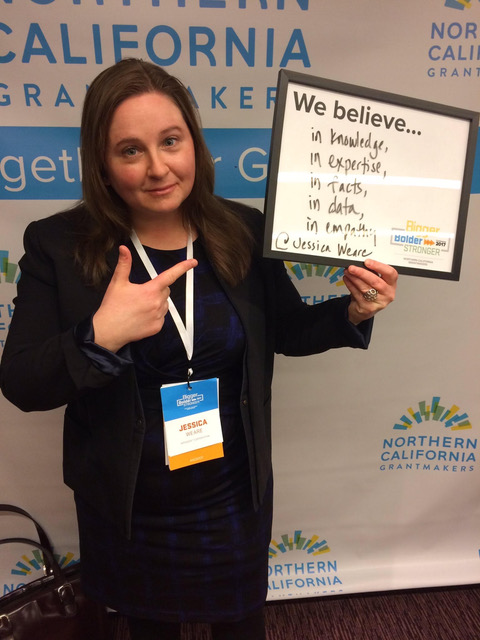
The most moving thing I did in 2022 was attend the opening of the Tanforan Memorial in San Bruno (funded by California Humanities through a Humanities for All Project Grant), which honors the 8,000 Californians of Japanese ancestry who were incarcerated at that site during World War II. It was a deeply Californian moment: right between a BART station and a shopping center, here’s a defiant recognition of historical cruelty. Every inch of California has been fought over, stolen, exploited, and abused; every corner of the state has been tarnished by racism, greed, inequity. And still, on an August afternoon, the sky was gorgeously blue, and hundreds of people—from politicians to toddlers—showed up to bear witness. Several dozen survivors who had been held at Tanforan attended the
dedication ceremony, finally honored by the same government that unjustly imprisoned them. So many Californians come here from somewhere else, as I did, and at its best this state offers us all the hope that here, we will finally learn from the past and get it right in the future.
What are the top five books you recommend right now?
First, The Warmth of Other Suns: An Epic Story of America’s Great Migration, a perfect book. Isabel Wilkerson has an astonishing ability to pay equal attention to the smallest choices a person can make and the massive social and political forces that shape every human life. She writes with rigor and love, holding individual Black lives with care and honoring them with her unflinching close attention. I understand California and America better because of this book; I think about it at least once a week.
Attica Locke writes my favorite novels: juicy crime stories made richer by how much nuance, depth, and imperfection she grants every single character. Each one is a master class in empathy.
Primo Levi’s memoir The Periodic Table has a startling final sentence that genuinely makes me feel more alive.
I’m from Maine. I’m required to love Stephen King and I do, but his novel 11/22/63 is really exceptional: he builds a credible and terrifying alternate history of America and also nails the deep regret we all feel about versions of our lives we can’t live.
Finally, no one has shaped my thinking more in the last three years than Tricia Hersey, founder of The Nap Ministry. She offers such a clear view of how a human life should be lived and valued, and we’re all lucky for the opportunity to learn from her manifesto, Rest is Resistance.

